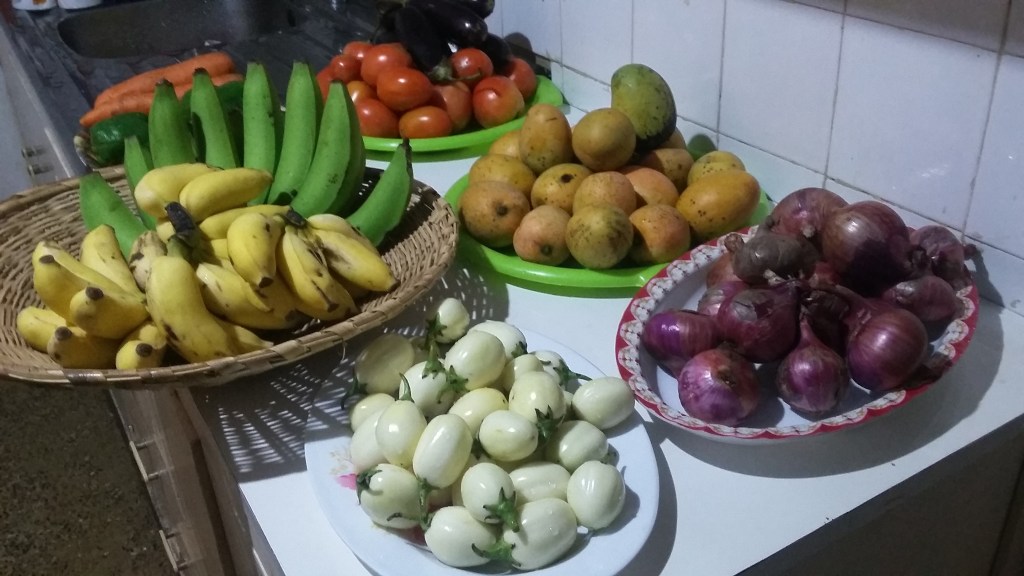The Budget Monitoring and Accountability Unit (BMAU) of the Ministry of Finance, Planning and Economic Development (MoFPED) caused a bit of a stir during the most recent Joint Agriculture Sector Annual Review (JASAR) 2016 when it reported its findings on the performance of programmes under the agriculture sector during the government’s financial year 2015/2016 – the year under review.
One such instance in which the BMAU report caused a stir at the JASAR 2016 was when BMAU presented its findings on the performance of projects for enhancing national food security. The BMAU reported that it had carried out a combined assessment of both ‘donor’ funded projects and government funded ones that are reportedly targeted towards enhancing national food security.
According to the BMAU it found that on average the physical performance of those projects during the year under review was at only 24 percent; a poor performance. Worse still, the BMAU reported that the projects for enhancing food security had a poor physical performance while at the same time the counterpart funds – Government of Uganda (GoU) contributions – for those projects were fully absorbed; as in fully utilised.
Yes, my instant reaction was to not agree with the BMAU assessment that such projects could be rated as having fair performance on grounds that they had absorbed all the money – GoU counterpart funding. Those projects’ performance is simply poor as is reflected in their physical performance, irrespective of whether they have done excellent in their financial performance – using the money!
The challenge of using mathematical averages in order to measure human and social development indicators is clearly manifest in the manner in which the BMAU measures success, I think.
The BMAU, however, further explained that the reason for the poor physical performance of projects targeted towards enhancing food security was because of “delayed declaration of project effectiveness.” Continue to read the full detailed analysis here.


4 responses to “Enhancing National Food Security or Not”
It is a good lesson for me too in my own country and i have also learnt a new term on project effectiveness from different perspectives. Melton Luhanga, Malawi
LikeLike
Poor physical performance of projects targeted towards enhancing food security is because of wrong policies. Case in point, millions of dollars from donors to other Universities on behalf of NARO e.g. http://news.cornell.edu/stories/2014/08/new-cornell-alliance-science-gets-56-million-grant
and billions of shillings the Government of Uganda has spent on GMO research under the pretext that GMO agriculture uses less toxic chemicals therefore more environmentally friendly and produces higher yield to feed a fast growing population.
Every time someone tried to challenge those assertions made by Ugandan scientists at NARO, he/she was told to provide evidence to the contrary that is based on research findings.
Then, when Dr. Byarugaba Bazirake made the following assertion: “Dear Colleagues, We need to be extra careful in media. No speculation but empirical data and elucidated matter!!!”, I responded with this:
Well said Dr. Byarugaba Bazirake, “Dear Colleagues, We need to be extra careful in media. No speculation but empirical data and elucidated matter!!!”
Later.
Sam
Note: What else do our lawmakers need to admit that GMO agr. policy can’t succeed in proving higher yield and using less herbicides and pesticides in Uganda after having failed to do so in the US and Canada!
LikeLike
The bottom line is this, unlike our neighbor Rwanda, Uganda’s food projects always fail. The question is why?
Let us look at this example of Coffee and how the two governments differ in tackling Coffee quality problems to increase its value:
Rwanda’s approach on how to improve Coffee quality is through constant training farmers:
“Five years ago, all Rwandan coffee sold at the C-grade, or lowest-quality, price. Now, demand for fully washed Rwandan coffee (about 7 percent of the crop) far exceeds supply. “The emergence of Rwandan specialty coffee on the global market is stunning,” said Michael D. Ferguson, a spokesman for the Specialty Coffee Association of America, a trade group in Long Beach, Calif. “Everyone inside the specialty coffee industry is excited about it.”
Costco will begin offering Rwandan beans in September. Starbucks featured Rwandan coffee — at $22 a pound ($48.40 a Kg), as one of its exceptional “Black Apron” offerings — and buys it regularly for its blends.” – http://www.nytimes.com/2006/08/06/business/yourmoney/06coffee.html
In Uganda, Coffee Farmers Who Depart From Government Guidelines get Arrested:
“Coffee is a sensitive commodity. Farmers must follow guidelines to preserve quality,” said Apollo Kamugisha, a technical officer with the state-run Uganda Coffee Development Authority. “All police units have orders to arrest noncomplying farmers.”
RAKAI, Uganda—Richard Mutebi, a coffee farmer in Uganda, was drying coffee beans in his backyard last month when a police truck made an abrupt stop in front of his roadside home.
What followed was a multiday stay in jail for the crime of spreading beans on the bare ground instead of upon a plastic tarpaulin.
Meanwhile, his brush with police has left Mr. Mutebi, the coffee farmer, angry. The 38-year old father of five says since his time in prison, he hasn’t raised enough money to buy the plastic bags for drying the coffee beans. “My arrest was uncalled for,” he said. “I have been struggling on my own all these years, and this is not the support I expect from government.” – http://www.wsj.com/articles/in-uganda-coffee-farmers-who-depart-from-government-guidelines-risk-arrest-1468056601
Rwanda: Achieving Food Security, Reducing Poverty, Moving up the Value Chain-
http://www.worldbank.org/en/results/2016/06/16/rwanda-achieving-food-security-reducing-poverty-moving-up-the-value-chain
Another issue is that instead of Uganda government spending funds on investing in irrigation, you hear of experimenting with GMO crops that hopefully will be able to resist drought! – http://africareportingproject.org/2010/01/14/for-uganda-irrigation-missing-link-to-fighting-hunger/
Trillions of shillings were spent on NAADS and there is nothing to show for it! The same people who were directly and indirectly linked and or praising NAADS are advising the government and you don’t hear investment in irrigation, instead you hear “using better seed/crop varieties” (in other words GMOs) –
“I think emphasis should be put on crops that earn big in terms of foreign exchange. Crops such as coffee, cotton and cocoa, which are crops Ugandans have been growing for years. We now need to do it more intensively, using better varieties, apply fertilisers and improve marketing,” says Kiggundu. – http://www.sunrise.ug/news/201604/can-musevenis-ushs-1trillion-pledge-save-ugandas-agriculture.html
While Rwanda invested in irrigation at a tinny fraction of Uganda’s expense in NAADS is now reaping bigger benefits and has a practical solution to drought and global warming. Uganda needs to learn from Rwanda and invest in “Irrigation and Mechanization Task Force”, not NAADS. – http://www.busiweek.com/index1.php?Ctp=2&pI=1827&pLv=3&srI=84&spI=463
https://www.google.com/search?q=irrigation+in+rwanda&client=safari&rls=en&source=lnms&tbm=isch&sa=X&ved=0ahUKEwiXg-Wq84jQAhUHYiYKHbWeAXwQ_AUICigD&biw=1280&bih=738#tbm=isch&q=%22irrigation+in+rwanda%22&imgrc=FWznzqlnFXdPsM%3A
LikeLike
Please try to reduce the length of your comments to all my posts in the future and also to try and directly engage the posts. Thank you.
LikeLike